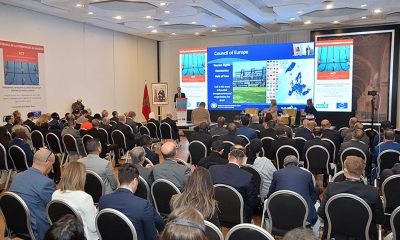
Although the existence of sport can be traced back as far as 776 BC, it has only featured at the level of the European Union (EU) in the late 1980’s owing to an increase in economic activity.
Today, EU law is of considerable importance in the regulation of sport. Although there has been an increase in EU legislation that seeks to regulate sport, at the same time EU law still fundamentally recognises the sporting autonomy principle within Sport Governing Bodies (SGB’s).
Such sporting autonomy, which can take various forms such as legal, political, and financial, allows Sport Governing Bodies to establish, amend and interpret their rules freely, without any undue political or economic influence.
The competence of the EU in relation to sport is to develop an evidence-based policy and to foster cooperation and manage initiatives in support of physical activity and sport across Europe.
In 2017, the European Commission released a White Paper on Sport which was hailed as being the first comprehensive initiative on sport by the EU.
Through the implementation of the proposed actions, the Commission gathered useful evidence on key issues to be addressed in the future.
The White Paper envisioned a number of objectives, including, among others, enhancing the societal role of sport, promoting public health through physical activity, boosting volunteer activities, enhancing the economic dimension of sport and the free movement of players as well as fighting doping, manipulation of sports competitions and money laundering.
Paragraph 5 of the White Paper further explains how the Commission intends to follow up on these various initiatives through structured dialogue with key sport stakeholders and cooperation with all member states.
The EU’s responsibilities within sport are relatively new, having only been acquired with the entry into force of the Treaty of Lisbon in December 2009 whereby the EU acquired a specific competence in the field of sport.
Article 6(e) of the Treaty on the Functioning of the European Union (TFEU) confers on the EU the competence to support or supplement the actions of the member states in the field of sport.
Article 165(1) sets out the details of a sports policy, stating that the EU ‘shall contribute to the promotion of European sporting issues, while taking account of the specific nature of sport, its structures based on voluntary activity and its social and educational function’.
Article 165(2) in turn refers to ‘developing the European dimension in sport, by promoting fairness and openness in sporting competitions and cooperation between bodies responsible for sports, and by protecting the physical and moral integrity of sportsmen and sportswomen, especially the youngest’.
Article 45 of the TFEU is another notable article for sports since it enacts the principle of the free moment of works within the EU.
Also of great importance, are the competition rules contained in Articles 101 and 102 respectively of the TFEU.
Equally of crucial importance is the EU Work Plan for Sports, which is an EU document dictating sports policy within the EU.
Now in its fourth plan (2021-2024), it focuses on the Union’s key activities in the field of sport and acts as a guidance instrument for the promotion of corporation between EU institutions, member states and sports stakeholders.
Physical activity
At the top of the agenda in the current plan is physical activity via investment in sport and health-enhancing physical activity, the creation of sport opportunities for all generations, strengthening the ‘the recovery and the crisis resilience of the sport sector’ in the aftermath of the COVID-19 pandemic, innovation and digitalisation in all areas of the sport sector as well as working towards achieving a ‘green sport’ which will be in line with the EU’s green transition.
Two key workings of the EU for the further development of sport are the EU’s Erasmus+ programme as well as the EU’s European Week of Sport.
For the first time ever, during the Erasmus+ programme 2014-2020, a specific budget was established to support projects and networks involved in the area of sport.
Under the current Erasmus+ programme (2021-2027), funding solely for sport has been increased to 1.9% of the total programme fund with the promotion of ‘learning mobility of sport staff, as well as cooperation, quality, inclusion, creativity and innovation at the level of sport organisations and sport policies’ being highlighted as one of the three key objectives of the current programme.
Since 2017, the European Week of Sport (EWOS) has been held between September 23 and 30 across all member states (SportMalta organises Malta’s EWOS).
The idea behind such kind of event is to promote sport and physical activity across Europe at national, regional and local levels.
Such event showcases the various different types of sport that exist and aims to encourage more people to take up a sport as well as to practise a healthier lifestyle.
The EU’s workings continue to give sport the priority, and crucially, the funding, at it requires to continue to develop allowing stakeholders to promote a healthier lifestyle across the EU.

World Cup News
-
FIFA World Cup
/ 1 month agoSon scores but Thailand hold South Korea in World Cup qualifier
Son Heung-min scored but South Korea were held 1-1 at home by Thailand in...
By AFP -
FIFA World Cup
/ 2 months agoJapan-N. Korea World Cup game to stay in Pyongyang, JFA says
Japan’s World Cup qualifier against North Korea will be played in Pyongyang as planned...
By AFP -
FIFA World Cup
/ 2 months agoGerman ex-FA bosses on trial over World Cup tax evasion
Three German ex-top football officials went on trial on Monday in a 13.7-million-euro ($14.8...
By AFP -
FIFA World Cup
/ 2 months agoSaudi Arabia formally launches bid for 2034 World Cup
Saudi Arabia formally launched its bid to host the 2034 World Cup on Friday,...
By AFP

BOV Premier League
Tickets selling fast for Floriana vs Ħamrun Spartans ‘title decider’

English Premier League
Watch: Liverpool need Arsenal, Man. City ‘crisis’ to win Premier League – Klopp

Winter Olympics
Watch: Geisenberger wins sixth Olympic medal to tie luge record






































